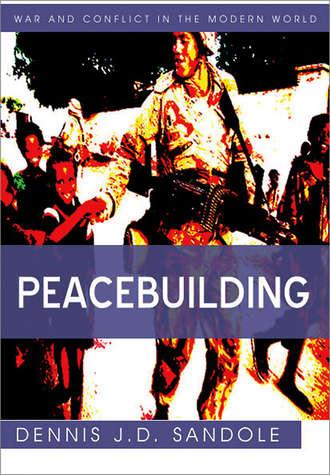
Полная версия
Peacebuilding
Preventing violent conflicts and establishing comprehensive lasting peace in some of the world’s most turbulent regions has become the new global imperative. But to be effective, peacebuilding must be a multilateral, not a unilateral process. Even for the world’s sole surviving superpower, promoting and sustaining durable peace requires communication, co-ordination, co-operation, and collaboration between local, national and international actors, nongovernmental as well as governmental. In this book, Dennis Sandole explores the theory and practice of peacebuilding, discussing the differences and similarities between core aspects of peace processes, namely violent conflict prevention; conflict management; conflict settlement; conflict resolution and conflict transformation. Assuming no prior knowledge on the part of the student reader, the volume distinguishes between proactive and reactive peacebuilding as strategies to pre-empt or otherwise respond to global problems, such as identity conflicts, failing/failed states, terrorism, pandemics, poverty, forced migrations, climate change, ecological degradation, and their combined effects. Drawing on a wide range of conflicts such as Bosnia-Herzegovina, Cambodia, East Timor, Haiti, South Africa and Macedonia, the book debates the 'lessons learned' from past experiences of reactive as well as proactive peacebuilding, plus the challenges which lie ahead for those striving to bring about sustainable peace, security and stability to war-torn or otherwise fragile regions of the globe.

